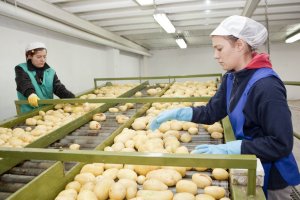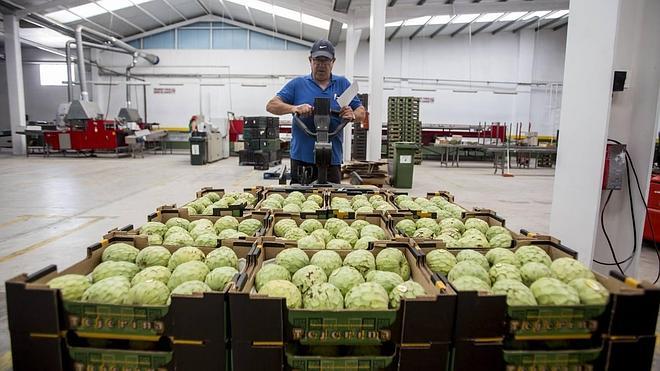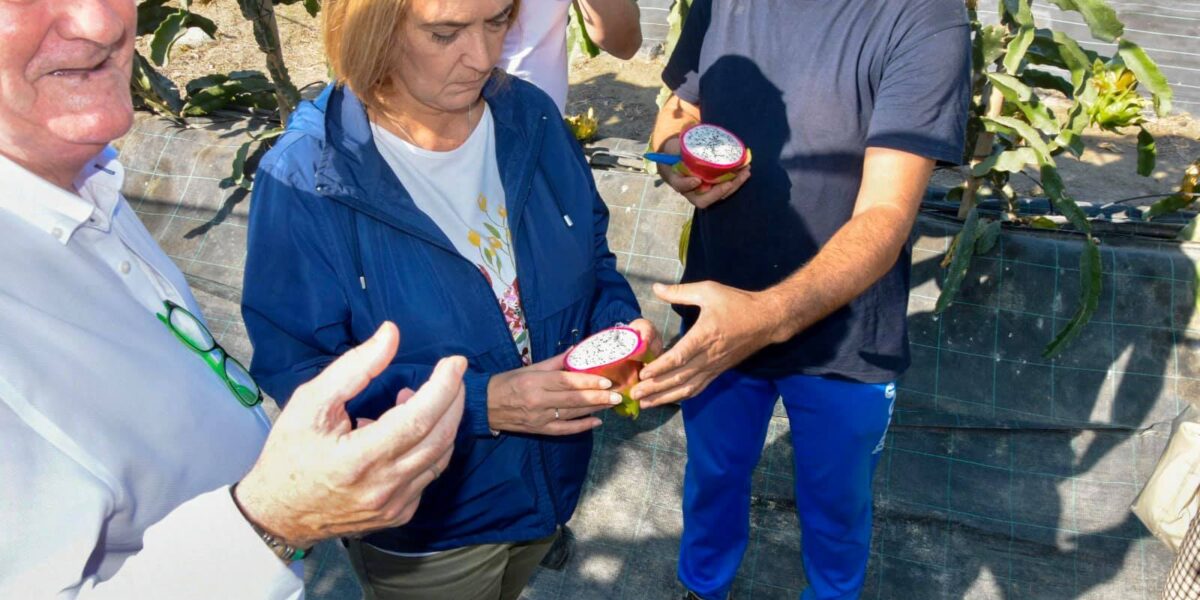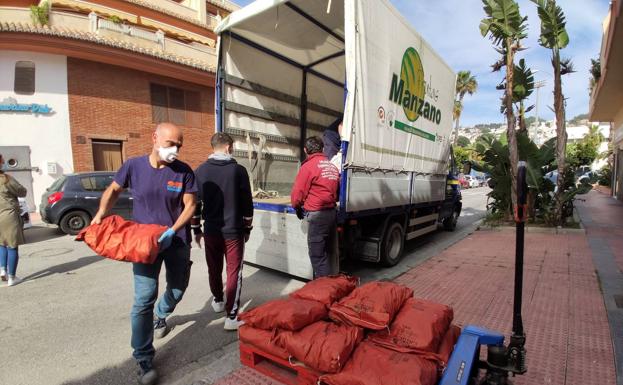
Granada Coast ‘potatoes’ are not extinct
One of the most emblematic products of the plowlands of Motril and Salobreña survives, despite its announced disappearance, and the campaign closes with two million kilos.
The ‘potatoes’. Just like that. Many generations of farmers of the fertile plains of Motril and Salobreña could tell a thousand stories of a generous tuber that, for decades, provided a productive and economic plus to the coastal lands. But when the sugar cane ran out, the potatoes ran out and today they survive to extremes unthinkable twenty years ago, having gone from twelve million kilos a couple of decades ago to the scarce two million with which the 2011 campaign will be settled, reduced to a short period of thirty days, from March 15 until today April 15. Not even a shadow of its former glory. One of the most emblematic crops of the fertile plains of Motril and Salobreña is enduring the onslaught of its own announced extinction.
“Before it was a business and gave sustenance to many people, now this lasts a month nothing more,” explains Elena Romero, sales manager of Frutas Tejerina, one of the very few companies in the area that still work the potato in the area and are seeing the end of the crop. “The potato used to take advantage of the sugar cane fallow, and that gave the soil an excellent quality for this crop,” says Romero.
And so it is, the scarce fertile plain that survives in the coastal strip is an extension of barren land in which not even the stones are grown anymore. In the past, potato plantations were used to prepare the land. Now, in order to make it profitable, a costly process has to be carried out: a lot of manure is needed, which has a high cost, the price of fertilizer has risen by 50% and diesel fuel has also shot up.
“The end of the cane sentenced the potatoes of the vega,” argues Pedro Gonzalez, head of attention to the farmer of the company Miguel García Sánchez e Hijos, S.A.. For González, in addition, the own configuration of the productive zones of Motril and Salobreña make unviable, in the short term, this and many other testimonial crops. “We speak of ‘pieces’, of an excessive smallholding that complicates the mechanization and therefore the profitability of the potato”, he points out.
But this is not all. The price of seed has quintupled, it is imported from France and Holland and this contrasts with the brutal drop in production on the Costa Tropical, which has gone from 1,800 kilos per hectare to much less than half and all this taking into account that prices per kilo to the farmer are the same as they were no more and no less than twenty years ago. “At that time, fifty pesetas were fifty pesetas,” says Elena Romero, “but today this is nothing.
However, the companies of Motril that still work this product are mainly destined to the national market and, more specifically, to areas such as Bilbao, Valladolid, Seville or Cadiz and even, outside our borders, to Portugal. Destinations such as Perpignan (France) are already finished.
To all this, the farmer of the area does not cease to be depressed by the fact that the seed that costs a fortune here is sold, at a ridiculous price, in Morocco; a country whose production overflows not only that of the Coast, but that of Spain as a whole, plus the French, Egypt and a long etcetera, “and we also see how these potatoes are sold in large supermarkets as new, being old, contrasting with the quality that can still bring our product,” says the commercial Tejerina. The data speaks for itself: Of seven or eight potato ‘washing machines’ on the coast there are only two left. One more company has withdrawn this year.
Selling on the street
On the field level, the farmer is furious. “I have had to sell sacks in the street to earn something,” says Juan Lupiáñez Correa, who in his fifties continues the family tradition of potatoes, a legacy more emotional or cultural than economic. “My father-in-law, my father. They used to tell me that I didn’t know how to put them in until I got them better than they did,” he comments his memories with pleasure.
This farmer, one of the few who has dared to mechanize his work, laments that “the potato is inevitably lost.” “I like the potato, it grows very well as an extra-early crop, it is watery and very good to eat… But the potatoes that are brought to us from outside have even brought pests,” he says sadly.
This farmer is reluctant to abandon something that is more than a crop, but the inevitable question arises from this resistance: “What else can I grow? It already happened with corn, now it’s the tuber’s turn, and from there it’s only one step to the soil being used only to raise ‘jopos’. The field is sunk,” Lupiáñez says.
A few years ago, sugarcane gave way, for periods of time, to potatoes. It was very easy to locate the farms, you could see them everywhere; “today you have to go looking for them”, says this farmer.



